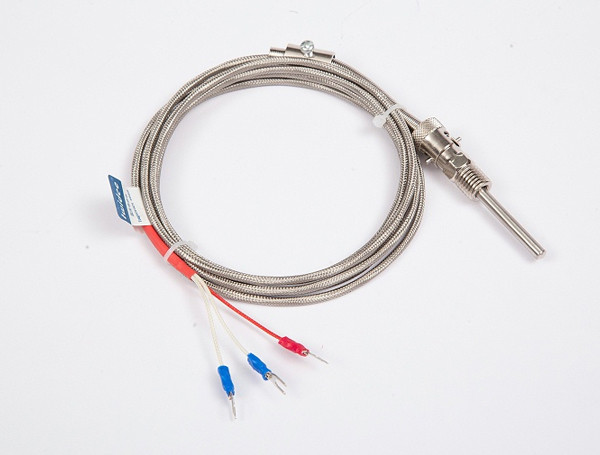Thermocouples, resistance thermometers and infrared thermometers are common temperature sensors, each of which has some advantages and disadvantages, and the following are the main features to compare them:
Advantages and disadvantages of thermocouples:
Advantages:
Wide temperature range: Thermocouples are suitable for extreme temperature ranges, from very low to very high temperatures with good performance.
Fast response speed: The thermocouple response speed is relatively fast, especially for the detection of transient temperature changes.
Strong durability: Because thermocouples are usually made of metal alloys, they have strong mechanical strength and durability.
Not affected by humidity: Thermocouples are not affected by humidity changes and are suitable for humid environments.

Weaknesses:
Relatively low accuracy: Compared with some other sensors, the accuracy of thermocouples is relatively low, especially in the normal temperature range.
Cold end compensation required: cold end compensation needs to be considered when measuring thermocouples to eliminate errors caused by temperature gradients.
Small voltage signal: The voltage signal generated by the thermocouple is small and requires signal processing by the amplifier.
Advantages and disadvantages of resistance thermometers:
Advantages:
High accuracy: Resistance thermometers generally have high accuracy, especially in lower temperature ranges.
Good stability: The stability of the resistance thermometer is relatively good in long-term use.
Easy calibration: Resistance thermometers are relatively easy to calibrate due to their linear nature.
Weaknesses:
Narrow temperature range: Resistance thermometers have a relatively narrow range of use, especially at extreme high temperatures.
Slow response: Resistance thermometers are slow to respond compared to thermocouples.
Affected by humidity: In a humid environment, humidity may have a certain impact on the performance of the resistance thermometer.
Advantages and disadvantages of infrared thermometer:
Advantages:
Non-contact measurement: Infrared thermometers can achieve non-contact temperature measurement, suitable for remote or no direct contact measurement scenarios.
Fast measurement speed: Infrared thermometers can measure the target temperature in real time and have a fast response speed.
For multi-object measurement: An infrared thermometer can measure the temperature of multiple objects at the same time.
Weaknesses:
Affected by environment: The measurement of infrared thermometers is affected by environmental conditions (such as atmosphere, humidity).
Relatively low accuracy: In some applications, infrared thermometers have relatively low accuracy, especially when measuring small targets far from the instrument.
Higher price: Compared to other sensors, the price of infrared thermometers is higher.
Choosing the right temperature sensor depends on the specific application requirements, including the measurement range, accuracy requirements, environmental conditions, and so on.